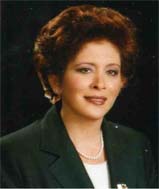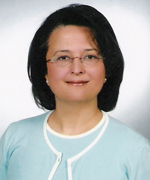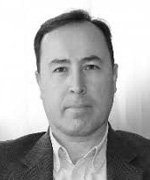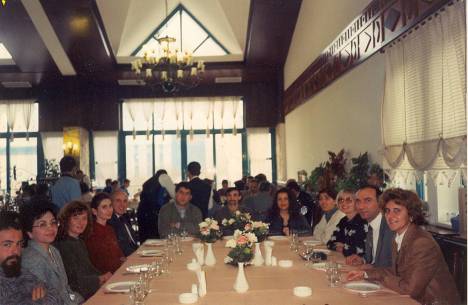 Following the granting of the first undergraduate degrees at the Middle East Technical University in 1960, Master's Programs were started in all faculties except the Faculty of Administrative Sciences. The first master's degree was given by the Mechanical Engineering Department in 1961.
Following the granting of the first undergraduate degrees at the Middle East Technical University in 1960, Master's Programs were started in all faculties except the Faculty of Administrative Sciences. The first master's degree was given by the Mechanical Engineering Department in 1961.
In 1964, upon the recommendation of the METU Board of Trustees, the University Council decided to start doctorate programs in some departments. In 1967, one student from the Physics and Chemistry Departments received the first doctorate from METU. Until 1981, all graduate programs were carried out by the relevant departments within the faculties, and 2965 students, 2839 from the Master's programs and 126 from the Doctorate programs, graduated from the graduate programs.
Our university has always been aware of the importance of postgraduate education in raising an educated workforce of superior quality. For this purpose, the University Council decided to establish the Graduate School and be managed by a dean to increase the graduate research activities of the departments, ensure more effective use of university resources, and design interdisciplinary programs that are unusually flexible, open to change and creativity, in which multidisciplinary studies will be carried out. Prof. Dr. Polat Gürkan has been appointed as the dean of the Graduate School.
With the implementation of the YÖK law in 1982, the Graduate School was transformed into the Graduate School of Natural and Applied Sciences, and Prof. Dr. Kemal Gürüz was appointed.
As a mission, the Graduate School of Natural and Applied Sciences, since its establishment in 1981, has adopted the purpose of making METU a research university in line with our university’s objectives and its departments to focus on research more actively. It has chosen as its goal to accelerate research resources increase the number of graduate students and without lowering the level of education. In line with these goals, it has increased the project resources and the number of students over time with the support of the University administration. The Institute of Science and Technology, in line with the goals that our University set while establishing the Postgraduate School Dean's Office, with the EABD Programs chosen by the best students in Turkey and the surrounding countries; Supports interdisciplinary research, which will increase the competitiveness of the country at the advanced and international level and in the world markets; trains faculty members for newly established universities in our country; has been a unit that trains highly qualified professionals and researchers for the society.
Institute of Science from Past to Present;
- The terms of office, dates, names, and photographs of our faculty members, who have been working as administrators since 1981, are shown in Figure 1.
- The 18 Departments affiliated with the Graduate School, which was established in 1981, are given below, respectively:
- Computer Engineering, Biology, Environmental Engineering, Electrical Engineering, Industrial Engineering, Physics, Aviation Engineering, Civil Engineering, Geological Engineering, Chemistry, Chemical Engineering, Mining, and Petroleum Engineering, Mechanical Engineering, Mathematics, Metallurgical Engineering, Architecture, Architecture-Structural Sciences, Architecture-Restoration, City and Regional Planning, Statistics and Operations Research.
- The first Director of the Institute, Assoc. Dr. Kemal GÜRÜZ started his career in 1982 and was appointed as his assistant by Assoc. Nurinnisa Usul and Assoc. Dr. Rüknettin Oskay was brought. Tüzün Denli, who later worked in various units of our university and retired from our university as the Director of Cultural Affairs, started to work as the first secretary of the director of the Institute.
 |
 |
 |
 |
 |
|
Prof. Dr. Polat GÜLKAN (1981-1982) |
Prof. Dr. Kemal GÜRÜZ (1982-1984) |
Prof. Dr. Bilgin KAFTANOĞLU (1984-1987) |
Prof. Dr. Halim DOĞRUSÖZ (1987-1988) |
Prof. Dr. Alpay ANKARA (1988-1993) |
 |
 |
 |
 |
 |
| Prof. Dr. İsmail TOSUN (1993-1996) |
Prof. Dr. Tayfur ÖZTÜRK (1996-2003) |
Prof. Dr. Canan ÖZGEN (2003-2014) |
Prof. Dr. Gülbin DURAL (2014-2018) |
Prof. Dr. Halil KALIPÇILAR (2018-2024) |
Figure 1. Our administrators who served as directors between 1981 and 2024
Prof. Dr. After Kemal GÜRÜZ, Prof. Dr. Bilgin KAFTANOĞLU (1984-1987) was appointed and his assistants were Prof. Dr. Hüseyin Worker and Prof. Dr. Birol Kilkis was appointed. During this period, EYK members were Prof.Dr.Ender Okandan, Prof.Dr.Haluk Pamir, Prof.Dr. It was Önder Yuksel.
Between 1984-1987, the abstracts of master's and doctoral theses were entered into the computer environment for the first time; A database was created in terms of subject, author, and keywords. The first interdisciplinary projects-theses, supported by the industry and carried out by several Institute Departments, were initiated. The Energy Group, composed of approximately 80 faculty members from different EABD's within the institute’s body, whose establishment started in the institute’s early years, produced new theses and projects and enabled the World Energy Council and the Turkish National Committee to contribute to them. Protocols have been prepared to cooperate with many universities abroad (MIT, Texas Tech., Darmstadt, etc.) at the graduate level. With the contributions of different EABD's, the High Technology Group was established, and activities were started in various fields. These include Computer-Aided Design and Robotics (CAD/CAM/ROBOTICS), Solid-state electronics and semiconductors, New materials, and Biotechnology. As a result of the synergy created by these studies, at our University; Computer-Aided Design and Robotics Center (BİLTIR), Clean Room for Solid State Electronics in Physics Department, and METU-MET on Eskişehir Road were established.
Prof. Dr. The Institute continued the activities mentioned above with the deputy directors of the institute and EYK members. They continued their duties in the short 9-month period that Halim DOĞRUSÖZ was the director.
Appointed as director between 1988-1993, Prof. Dr. During the period of Alpay ANKARA, his assistants Prof. Dr. İsmail Tosun and Prof. Dr. Ramazan Sever; EYK members were Prof. Dr. Mübeccel Demirekler, Prof. Dr. Semih Koray and Prof. Dr. Mustafa Pultar.
Prof. Dr. İsmail TOSUN was appointed as the manager between 1993-1996, and Prof.Dr.Mehmet A.Akgün and Prof.Dr.Cüneyt Can carry out the duties of assistant directors. During this period, EYK members, Prof. dr. Duran Taraklı, Prof. Dr. Mübeccel Demirekler, Prof.Dr. İnci Gökmen and later Prof.Dr.R.Sezer Aygün.
In these years, institutes began to be restructured, and institutes carried out student affairs. Graduate courses opened in EABDs were reviewed again; the principles to be followed when opening graduate courses with a certain minimum number of students and opening new interdisciplinary programs were determined. Comprehensive studies were carried out to prepare student regulations regarding graduate programs, and these regulations were later used in the Graduate Regulations designed by YÖK.
In 1996, he was appointed as the director of Prof.Dr. Tayfur ÖZTÜRK has been appointed. As his assistants, Prof. Dr. Ayhan Erler, Prof. Dr. Ufuk Gündüz, Assoc. During this period, EYK members were Prof.Dr. Duran Taraklı, Prof. Dr. Mübeccel Demirekler, Prof. Dr. R. Sezer Aygün. Then, alternately Prof.Dr.Nesim Erkip, Assoc. Dr.Mustafa Verşan Kök, Prof.Dr. Cahit Eralp, Associate Professor Gülden Berkman, served as EYK members. Prof. Dr. Ayhan Erler's name was given to the meeting hall. A group photograph of him and the Graduate School of Natural and Applied Sciences staff is shown in Figure 2.
The increasing number of students, the increase in the workload, and the diversification of the duties over the years necessitated the restructuring of the Institute. In this period, Gülhal Çakar was appointed as the first secretary of the institute.
The internal operating directive of the institute Prof.Dr. It was extensively renovated under the supervision of Tayfur Öztürk. As a result of the joint studies with the Department of Information Technologies, it was ensured that postgraduate applications and thesis advisor appointments were made in the computer environment. The forms of the Institute's transactions within the framework of the internal functioning have been renewed and made available on the internet. During this period, the Research Assistant Support Program (PRO-AD program) was initiated by Prof. Dr. İsmail Tosun to support successful graduate students and contribute to a qualified and dynamic research process and started to be widely used. Until the end of 2006, 103 Research Assistants benefited from this program. Due to the general restriction of the research assistant staff allocated to universities, it has not been possible to assign a Research Assistant to this program since 2004.

Figure 2. Prof. Dr. Ayhan Erler is seen in the photograph taken at a dinner shortly before his death.
In addition to the PRO-AD Program, the Graduate Student Allocation Program for Projects (PRO-LIT) was initiated. This program aimed to meet the researcher’s needs of the partner institution within the framework of a project, to hire the postgraduate student to work on the project on a paid basis, to work at the university for one term and at the institution for one time, within the framework of the mutually signed protocol, and thus to conclude a thesis study. In this context, correspondence was made with approximately 2000 companies and public institutions. At that time, this program was not as successful as expected because the students did not make enough requests for this program and perhaps insufficient communication with the Industry..
In 2001, for various reasons, a faculty member training program (ÖYP) was started for other universities throughout Turkey. Initially, the project, which began with a framework protocol signed between Atatürk, Kocaeli, Selçuk, and Süleyman Demirel Universities and METU, was supported by ÖYP, State Planning Organization, Ministry of Finance and Higher Education Institution. ÖYP Research Assistants, trained with the resources provided by DPT, are assigned to METU by Article 35 of the Higher Education Law and carry out their graduate studies. The Graduate School of Natural and Applied Sciences pioneered the studies on student admission and the structures developed later on within the scope of ÖYP.
In the same period, the Postdoctoral Researcher Support program (DOSAD) was presented to the University Executive Board (ÜYK) and started in 2000 with the decision of the University Board. This program aims to enable young researchers who have just completed their doctorate to participate in comprehensive projects in EABDs and thus contribute to a qualified postgraduate education and research process. The program, which continued as DOSAP in 2003, started with the protocol signed between 16 ÖYP Universities. Firstly, five researchers, two from the Department of Biotechnology and one from the Department of Biotechnology, and one from the Department of Environmental Engineering benefited from this program. DOSAP continues within the Rectorate.
The support of graduate thesis projects and interdisciplinary projects through the Institute was first initiated in this period. In this period, it was accepted that the research fund budget would be used for Research Fund Projects (AFP, current BAPs). Some of it would be distributed by the Institute, including postgraduate thesis studies. This method is still applied.
Finally, in 2003, Prof.Dr.Canan ÖZGEN started to work as the director. As his assistants, first Prof.Dr.R.Sezer Aygün and Prof.Dr. Vedat Toprak, and later Prof. Dr. Ali Kalkanlı replaced Prof. V. Toprak. As EYK members, Prof.Dr. Cahit Eralp, Associate Professor Gülden Berkman, Prof. Dr. Mustafa Verşan Kök and later Prof. Dr. Vedat Toprak and Assoc. Cem Topkaya was chosen. As the institute advisor, Assoc. Ayşe Berkman is working.
First of all, with the contributions of a committee (Prof Dr. Bülent Platin, Assoc. Dr. Arda Düzeş, Prof. Dr. Rüyal Ergül, and Lecturer Defne Akıncı and Research Assistant Esra Tüzün), a handbook for graduate thesis software, the old one. It was also examined, prepared again, and made available to students on the web page.
In addition, a booklet on the internal functioning of FBE has been prepared and presented to the use of advisors, students, and EABD presidents. In this context, training seminars were given to all EABD graduate secretaries once a year at FBE by the Secretary of the Institute, Ms. Gülhal Gür.
In this period, intensive studies for the thesis topics for industry and different sectors and the Industry Thesis program (San-Tez), which aims to support them, were started by Prof.Dr.Canan Özgen and Prof.Dr.Ali Kalkanlı in the 2003-2004 Academic academic year. The first SAN-TEZ Days Project Market was held in February 2005 at METU-KKM together with FBE, Rectorate, TR Ministry of Industry and Trade, and Ankara Chamber of Industry. Later, another workshop was held in 2006. The projects created by these events, where industrialists and faculty members were brought together, were submitted to TUBITAK through the Ministry of Industry, and most of these projects were accepted. Many SAN-TEZ projects have been initiated with this institution, with more than one workshop with the Machinery Chemistry Industry. The SAN-TEZ Program, a natural product of Industry-University cooperation, is still being expanded in all our universities under the TR Ministry of Industry and Trade coordination.
Reorganizing student-related forms and ensuring their effective use; reviewing the graduate programs of all Departments and adapting the European Credit Transfer System (ECTS) to METU, and preparing the diploma supplement; The implementation principles of student exchange within the scope of the Erasmus program were determined in this period under the supervision of Prof.Dr.R.Sezer Aygün.
In this period, a software program was first developed with the help of the Informatics Institute within the scope of a thesis, and then with the help of the staff of our Computer Center to keep the Universities participating in the ÖYP program constantly informed, to enable the students to make their applications in the computer environment, to make the pre-evaluation procedures of the EABD's and to make the admission and placement announcements. The program was reconsidered and made operational over the internet. In addition, the Travel Guidelines have been prepared by our Institute and approved by other institutes. The number of universities in this project, which started with four universities, reached 38 in December 2008. TRNC and Eurasia universities have been added to the scope of this project. As of 2008, Res.Ass., who worked at the Institute within Article 35. number 64 and ÖYP- Res. Assist. The number is 421. In addition to being a service offered to our country, this program also brought diversity to the research conducted at our university and increased the number of doctoral students by 25%. Because the students studying in this program will be faculty members, the xxx799 "Orientation Graduate Seminars" course has been developed to increase their educational performance in cultural and social dimensions, and seminars on 14 different subjects are held once a week in the course opened in the second semester every year with EABD codes.
After the current Departments in 1981, eight disciplines [Computer and Instructional Technology Education, Industrial Design, Food Engineering, Statistics, Engineering Sciences, Secondary Science and Mathematics Education, Mining Engineering, and Petroleum and Natural Gas Engineering] and six interdisciplinary [Operations Research ( 1981), Biochemistry (1985), Biotechnology (1990), Archeometry (1990), Polymer Science and Technology (1992), Geodesy and Geographical Information Technologies (1997)] program was started. After 2003, FBE organized seminars to examine the opening conditions of new interdisciplinary programs and Assoc. Based on the work of Ayşe Berkman, the requirements for opening new programs and the functioning of the programs were prepared and started to be implemented. Thus, Cement Engineering (2005), Micro and Nanotechnology (2005) and Biomedical Engineering (2006), and Earthquake Research (2007) Departments were established. At the end of 2008, there were 34 departments affiliated with the Graduate School of Natural and Applied Sciences. There are doctoral programs in all departments except Cement Engineering Department. In 2007, Interdisciplinary departments were asked to carry out self-evaluation studies. Archaeometry, Biotechnology, Polymer Science, and Technology Departments completed these studies.
Secondary Education Non-Thesis Master's Programs within the Institute were also created according to the requirements. These are; the Department of Industrial Engineering Engineering Management (1999), Department of Computer Engineering (2001), Department of Computer Engineering Department of Software Engineering (2002), Department of Civil Engineering Department of Hydrosystems Engineering (2002), Department of Civil Engineering Department of Structural Mechanics (2002).
Studies on the Earth System Science interdisciplinary program are continuing.
There have been many developments in the graduate programs of the Institute over the years. The Integrated Doctorate Program, which our University accepted in 2001 to complete the doctorate holistically with the suggestion of our institutes, was later taken as a Post-Bachelor's Doctorate Program by YÖK in December 2003 and entered the Postgraduate Education Regulations.
The Institute Board, believing that rewarding is of great importance in increasing students’ success, decided in 2004 to give graduate awards to graduate students every year in three categories: Thesis Award, Lecture Performance Award, and Publication Award. The thesis award aims to ensure that the thesis topics contribute to the development of our country, to the world of culture and thought, and to increase the research power of our country in basic science as METU. The purpose of the performance awards is to accelerate the completion time of the courses during graduate education and increase the students’ GPA. As of 2005, medals have been given by making evaluations within the framework of the rules accepted by other institutes.
In 2003, a document was prepared to prevent plagiarism in homework, project, and thesis studies and made available to everyone on the FBE website. In addition, with the work of a commission formed in 2006 (Prof. Dr. Bülent Platin, Prof. Dr. Turgut Önder, Associate Prof. Dr. Halil Turan, Associate Prof. Emel Aközer, Prof. Dtr. Meral Azizoğlu) students, consultants, EABD's within the body of FBE. Codes of conduct for its Chairpersons and FBE have been prepared and announced on the website.
In a study carried out in 2006, the summaries of all the theses made within the body of FBE in METU were made available on the web page.
In line with the goals of our university, FBE has given importance to cooperation with foreign universities. For this purpose, a workshop was organized with the University of California (Davis) in 2005 to prepare a joint research protocol, and visiting researchers and related faculty members and students were brought together. Thus, with the protocol signed in 2005, 20 ÖYP students went to this university for 12 months for "long-term" research, and also faculty members were exchanged. The ongoing cooperation was extended again in 2008 for four years.
The protocols of double doctorate programs of the Graduate School of Natural and Applied Sciences have been signed with many universities. Information about these (Foreign university, EABD, Student name) is given in Table 1.
Table 1
| EABD | University | Student Name Surname |
| Aerospace Engineering | University of Poiters - France | Dilek Funda Kurtuluş |
| Mathematics | Louis Pasteur University - Strasbourg I | Nermin Salepçi |
| Chemical Engineering | INSA of Lyon (Institut National des Sciences Appliquees de Lyon) | Işıl Ayrancı |
| Civil Engineering | Ecole Nationale Superieure des Mines de Paris - France | Serdar Korkmaz |
| Food Engineering | University Bordeaux 1 | Sencer Buzrul |
| Biology | Universitè Paul Sabatier- Toulouse France | Deniz Özüt |
| Chemical Engineering | Eindhoven University of Technology | Oluş Özbek |
| Biotechnology | Claude Bernord Lyon 1 | Beste Fatma Kınıkoğlu |
| Civil Engineering | Carnegie Mellon | |
| Aerospace Engineering | University of Orleans - France | Mehmet Karaca |
While explaining the activities of the Institute in different periods, its development in history is wanted to be given. Another indicator of the development of the Institute is the increase in the number of graduate students. While the number of postgraduate graduates from the whole university was 2965 from 1961 to 1981, 13907 doctoral students graduated from the Institute of Science from 1961 to 31.12.2008. As of 2008, there are 4440 graduate students enrolled in FBE affiliated EABD's, 2496 of which are in master's programs, 286 in non-thesis master's programs, 1393 in doctoral programs, and 265 in post-graduate doctorate programs.
Prepared within the scope of METU's 50th-anniversary celebrations in 2006, The FBE catalog, which includes the work done by the lecturers working in all the institute departments in the last five years, was published in January 2007.
With a practice that started in 2006, graduation ceremonies are held before the Institute Administrative Board meetings. The student, their parents, and advisors attend, explain the student's thesis topic, and sign the thesis.
At the beginning of each academic year, introductory meetings are held at the Graduate School for new students, where the inner workings of the students are explained.
